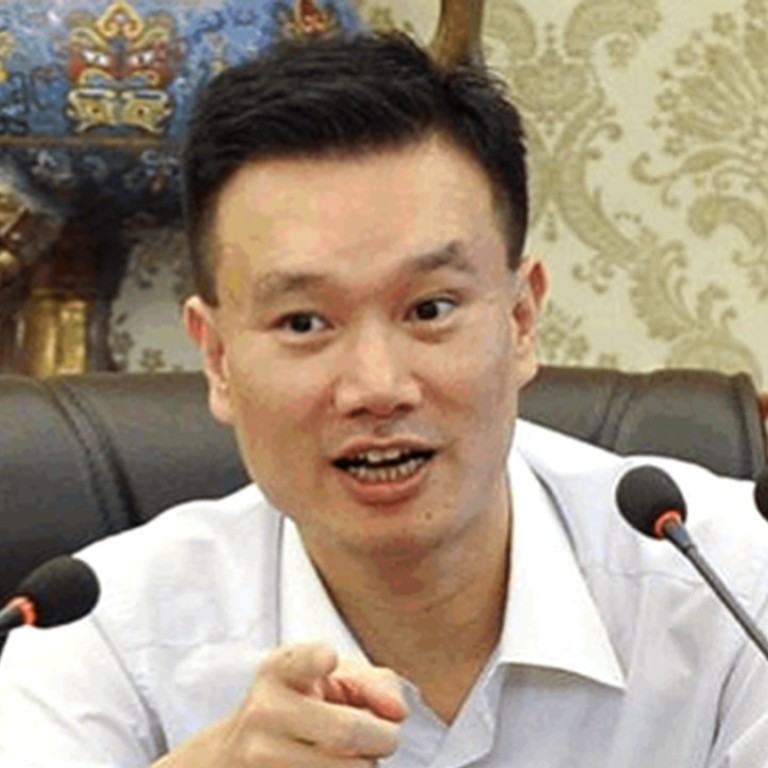
How media-shy, mysterious Chinese business heavyweight Ye Jianming came to global attention
For someone who regularly hobnobs with the upper echelons of the international political and business elite and chairs a large conglomerate, Ye Jianming has had unusually little direct interaction with the media.
There is no official account of how 40 year-old Ye made his first pot of gold to help him set up his Shanghai-based business empire which straddles the energy and financial services sectors. An internet search offers up different versions of his life story.
One account, by Chinese news portal Depth-paper, said the former wood-products trader and guesthouse operator earned his first fortune by helping to extricate a Hong Kong businessman from financial strife, buying his portfolio of real estate on the cheap.
Another version by Fortune magazine said that after a brief stint in his home province of Fujian as a forestry department enforcement officer, Ye bought, through an auction, oil assets the government had confiscated from Xiamen’s smuggling kingpin, Lai Changxing, using loans from state banks, as well as money from investors in Hong Kong and Fujian.
The magazine last year ranked Ye second in its “40 Under 40” list of the world’s most influential young people, two spots ahead of French president Emmanuel Macron.
Ye’s recent meetings with business heavyweights include the chairman of French energy giant Total and the chairman of Portugal’s largest savings and pension fund manager Montepio in September, according to the website of CEFC China Energy.
A 2016 Fortune interview described Ye as a “mysterious tycoon” and “a rare powerful private player aligned with the Chinese government”.
An adviser to CEFC had said that apart from Fortune, Ye has never given a media interview, adding the Fortune account “is not entirely correct” and that there is no official account of the early part of his life story.
Ye is listed as CEFC’s founder and chairman, but doesn’t appear anywhere on the shareholders list. Instead, the company is split between five shareholders who are all senior executives within its corporate structure, according to regulatory filings by its subsidiaries.
Despite his shyness towards the media, Ye has built a reputation as a stern supporter of President Xi Jinping’s “Belt and Road” investment and trade initiative.
Late last month, he held “in-depth exchanges” with Shanghai’s Fudan University chancellor Jiao Yang about the initiative. CEFC and Fudan agreed to build an “international high-end think tank dedicated to the [initiative] and global governance … to facilitate national strategies,” a CEFC statement said.
In Hong Kong, Ye is a “special consultant” to the New People’s Party, whose chairwoman Regina Ip Lau Suk-yee also co-chairs of Hong Kong’s Maritime Silk Road Society.
After building up a business empire which turned over 263 billion yuan (US$39 billion) in revenue in 2015, 60 per cent from trading petroleum products, CEFC embarked on an overseas shopping spree.
Its biggest deal to date is the US$9 billion purchase two months ago of a 14.16 per cent stake in Russia’s Rosneft, the world’s largest listed oil producer, chaired by Igor Sechin, a close ally of Russian President Vladimir Putin. The deal was financed primarily by state banks in Russia and China.
Ye and Sechin met in August and the two firms signed a “framework agreement” for “comprehensive strategic collaboration”.
Rosneft subsequently struck a deal to supply 11 million to 13 million tonnes of crude oil annually from next year to CEFC, pending final approval by Rosneft’s board, a CEFC spokesman told the Post earlier this month.
This was followed up by a November 11 agreement during the Asia-Pacific Economic Cooperation meeting in Da Nang, Vietnam, on the planned construction of a “world-class” petrochemicals plant in Yangpu, Hainan province. No details about the investment and production scale were announced.
Before that, CEFC had spent at least US$1.7 billion since 2015 buying energy-related businesses in Romania, the United Arab Emirates, Russia and Chad, plus another US$1.2 billion buying financial services firms in the Czech Republic and the US.

